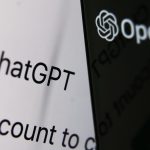The topic of automation and artificial intelligence replacing jobs is a recurring one which arises every time new milestones in the automation roadmap materialise. In part two of this three-part series, we will delve deeper into ChatBot GPT’s risks (opportunities and threats) posed by an increasingly automated world of work, the business cases and financial and non-financial to keep abreast of such developments.
I concluded part I by introducing the costs associated with hiring a Blockchain Developer. I decided to test the power of Chat GPT with a script I had been trying to source a Blockchain Smart Contract developer for. In plain English, I structured the requirement into six criteria based on the six business rules I wanted to implement. Using the command below, I got Chat GPT to generate a string of code for me in less than a minute. I have provided the command for one section as an example of the commands I used.
I presented the same piece of work to ten Blockchain developers across different jurisdictions to quote for the initial part of the work – writing the code – no vulnerability testing. The average response was three weeks duration and a jaw-dropping $5000 minimum.
Using the OpenZeppelin library and the latest version of solidity version 0.8.17, write an EVM and Polygon-compatible solidity smart contract that does the following:
//user management
check if the external wallet is a new wallet;
if new external wallet, create an account for the external wallet and store the wallet address;
if not new external wallet, authenticate and verify external wallet;
Once the code had been generated, Chat GPT then took its time to explain exactly what it had done in plain and simple terms.
I then asked it to review the work and identify potential security vulnerabilities. It analysed the code and suggested the code be improved to address the following vulnerabilities:
- Access control
- Reentrancy attacks
- Integer overflows or underflows
- Return values
- Handling Malicious or unexpected input
- Handling errors
- Gas limits
- Validating input
It is easy to ask it to deploy code fixes for these vulnerabilities. In all, generating the six-criteria code, including assessing vulnerabilities took less than ten minutes.
I presented the same piece of work to ten Blockchain developers across different jurisdictions to quote for the initial part of the work – writing the code – no vulnerability testing. The average response was three weeks duration and a jaw-dropping $5000 minimum.
Not only can Chat GPT write code in the language you specify, it can also convert code from one language to another. I tried this feature by converting Solidity, which is used for smart contract development on the Ethereum Virtual Machine (EVM), to Rust, which is used for smart contract development on the Solana ecosystem.
This is really quite amazing. As a business owner, I immediately understood the value to me of learning how to speak to such a powerful and versatile tool. In the one example I have provided, I might just have cut effort time from three weeks to ten minutes and for at worst one, to at best, two resources, including the:
- Solidity Developer
- Rust Developer
- Quality Assurance Engineers
In monetary terms, this could be a saving of circa $15,000 over a three week period and $180,000 over a 12-month period.
Therefore if asked whether OpenAI’s Chat GPT poses a threat to developers, the answer is quite simple. Yes! It poses a threat to Developers who do not learn how to use these tools to make their work faster and deliver better value for clients and for Developers who are difficult to work with.
For developers who understand the opportunity Chat GPT gives them to increase code completeness, accuracy and efficiency, Chat GPT is a dream come true. Let’s flip the script and look at the colossal opportunity for small business owners who lack the budget to hire one, let alone a team of three to build a decentralised application (dAPP). The true determinant of how much of a threat Chat GPT poses depends also on how willing business owners are to learn the language of productivity – because in one tool, you have a whole range of skills available 24/7.
This concludes part II of the article.
Tune in for section III, which will help you understand what jobs are at risk. Whether yours is on the chopping block and how you stay relevant to survive the threats that come with an ever increasing world of automation.










